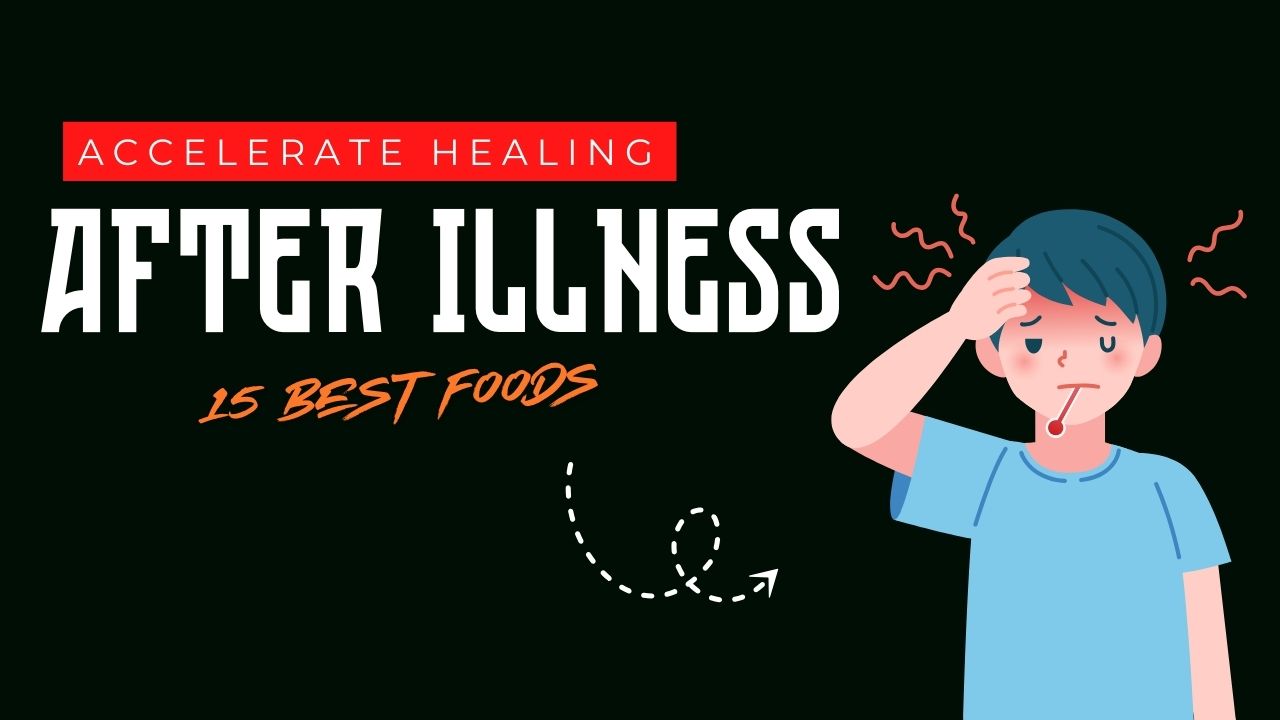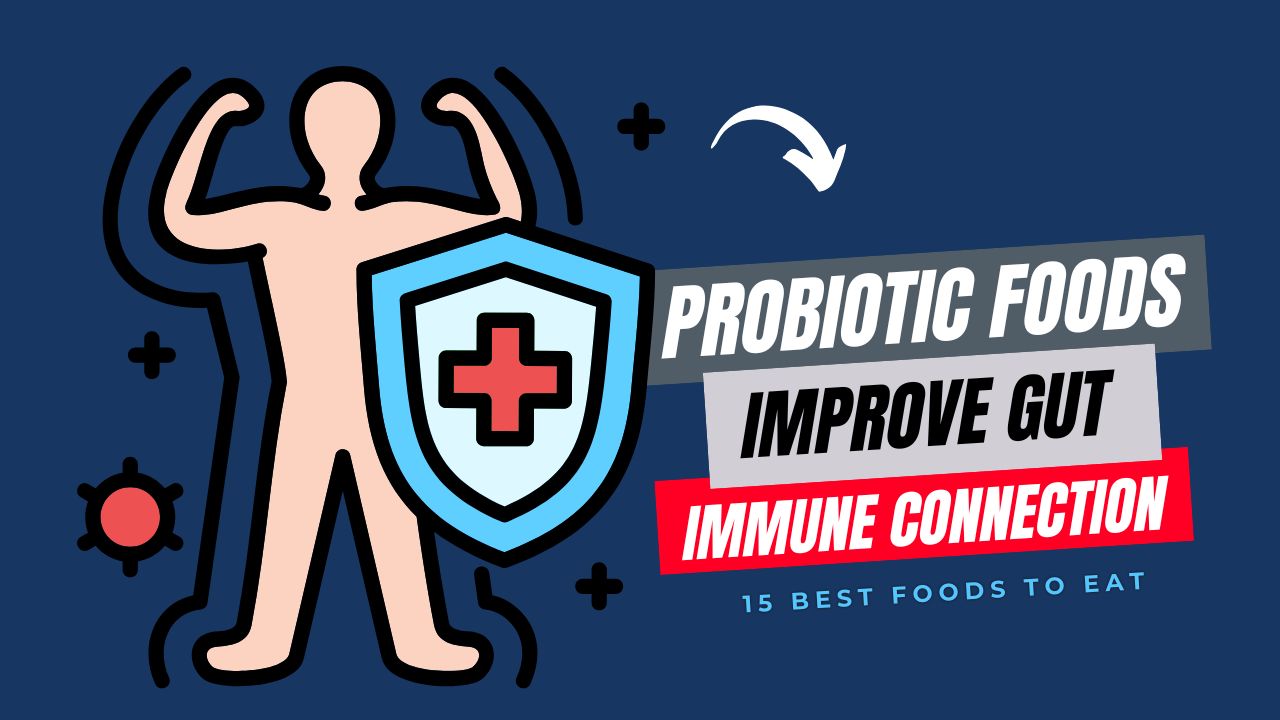Did you know that chronic inflammation is linked to over 50% of modern health conditions including arthritis, diabetes, and heart disease?
At the same time, a weakened immune system makes us vulnerable to everything from the common cold to more serious illnesses. What’s fascinating is that nature has already provided us with powerful tools to fight both problems—superfoods.
These nutrient-dense foods not only reduce harmful inflammation but also strengthen your body’s defense system. Unlike quick fixes or fad diets, superfoods work at the cellular level, improving overall health naturally.
In this article, we’ll explore 12 scientifically backed superfoods that you can add to your daily meals. For each, you’ll discover:
- Best ways to eat or use it
- Who should eat or avoid it
- Storage and buying tips
- Do’s and Don’ts (quick table)
- Possible side effects, if any
Let’s dive into the world of healing foods that can transform your health from the inside out.

Table of Contents
12 Best Superfoods To Eat
1. Turmeric
Why it’s a superfood: Turmeric contains curcumin, a powerful anti-inflammatory compound that rivals some medications without the side effects.
Best Ways to Eat or Use It
- Add a teaspoon to curries, soups, or stir-fries.
- Mix with warm milk for “golden milk.”
- Pair with black pepper to enhance absorption.
Who Should Eat / Avoid
- Good for: people with joint pain, athletes, and those with chronic inflammation.
- Avoid if: you’re on blood thinners or have gallbladder issues.
Storage & Buying Tips
- Buy whole turmeric root when possible for freshness.
- Store powder in an airtight jar away from sunlight.
Do’s & Don’ts
✅ Do: combine with black pepper.
❌ Don’t: rely only on supplements without consulting a doctor.
Possible Side Effects
Excessive intake can cause stomach upset.
2. Blueberries
Fact: Blueberries contain anthocyanins, the pigments that give them their deep color, and these compounds have powerful antioxidant and immune-boosting properties.
Best Ways to Eat or Use It
- Eat fresh as a snack.
- Add to smoothies or oatmeal.
- Freeze for later use without losing nutrients.
Who Should Eat / Avoid
- Good for: weight-loss seekers, heart health, and kids.
- Avoid if: you have kidney stone issues (due to oxalates).
Storage & Buying Tips
- Choose firm, plump berries with a uniform color.
- Store in the fridge and wash only before eating.
Do’s & Don’ts
✅ Do: eat fresh or frozen.
❌ Don’t: add too much sugar when cooking with them.
Possible Side Effects
Overeating may cause digestive discomfort due to high fiber.
3. Ginger
Interesting Fact: Ginger has been used for over 5,000 years in traditional medicine to reduce inflammation and improve immunity.
Best Ways to Eat or Use It
- Brew ginger tea.
- Grate into stir-fries or soups.
- Use fresh slices in smoothies.
Who Should Eat / Avoid
- Good for: pregnant women (nausea relief), those with colds.
- Avoid if: you’re on blood-thinning medications.
Storage & Buying Tips
- Buy firm roots with smooth skin.
- Refrigerate or freeze slices for later use.
Do’s & Don’ts
✅ Do: use fresh root over powder when possible.
❌ Don’t: overconsume as it may irritate the stomach.
Possible Side Effects
Excess can cause heartburn or mouth irritation.
4. Spinach
Myth Busted: Many think spinach only provides iron, but it’s also packed with vitamin C, beta-carotene, and flavonoids that reduce inflammation and boost immunity.
Best Ways to Eat or Use It
- Add raw leaves to salads.
- Blend into green smoothies.
- Lightly steam to retain nutrients.
Who Should Eat / Avoid
- Good for: people with anemia, athletes, and immune support.
- Avoid if: you have kidney stones (oxalates).
Storage & Buying Tips
- Look for crisp, dark green leaves.
- Store in the fridge, use within 3–4 days.
Do’s & Don’ts
✅ Do: wash thoroughly before eating.
❌ Don’t: overcook, as it destroys vitamin C.
Possible Side Effects
Too much raw spinach may interfere with calcium absorption.
5. Garlic
Fact: Garlic’s compound allicin has been proven to reduce inflammation and fight infections.
Best Ways to Eat or Use It
- Crush fresh cloves and let sit for 10 minutes before cooking.
- Add to sauces, soups, or roasted vegetables.
Who Should Eat / Avoid
- Good for: immunity, heart health, and fighting colds.
- Avoid if: you have acid reflux or are preparing for surgery.
Storage & Buying Tips
- Buy firm bulbs with tight skin.
- Store in a cool, dry place (not the fridge).
Do’s & Don’ts
✅ Do: crush before cooking to activate allicin.
❌ Don’t: use pre-minced garlic in oil for long storage (risk of bacteria).
Possible Side Effects
May cause bad breath or digestive issues in excess.
6. Green Tea
Best Ways to Eat or Use It
- Brew 2–3 cups daily for best results.
- Add lemon to boost antioxidant absorption.
Who Should Eat / Avoid
- Good for: weight management, energy, and brain health.
- Avoid if: you’re sensitive to caffeine or pregnant.
Storage & Buying Tips
- Store loose leaves in an airtight container.
- Use within 6 months for best flavor.
Do’s & Don’ts
✅ Do: brew at 80°C, not boiling, to protect catechins.
❌ Don’t: add too much sugar.
Possible Side Effects
Overconsumption may cause insomnia or stomach upset.
7. Chia Seeds
Best Ways to Eat or Use It
- Add to smoothies, yogurt, or overnight oats.
- Make chia pudding.
Who Should Eat / Avoid
- Good for: weight loss, digestive health, energy.
- Avoid if: you have swallowing difficulties (they expand in liquid).
Storage & Buying Tips
- Store in airtight jars away from moisture.
Do’s & Don’ts
✅ Do: soak before eating to avoid choking.
❌ Don’t: eat large amounts dry.
Possible Side Effects
May cause bloating if eaten in excess.
8. Salmon
Did you know? Wild-caught salmon is one of the richest sources of omega-3 fatty acids, which fight inflammation.
Best Ways to Eat or Use It
- Grill, bake, or poach.
- Pair with lemon and herbs for flavor.
Who Should Eat / Avoid
- Good for: brain health, heart health, athletes.
- Avoid if: you’re allergic to fish or pregnant (limit due to mercury).
Storage & Buying Tips
- Choose wild-caught over farmed.
- Use within 1–2 days of purchase or freeze.
Do’s & Don’ts
✅ Do: cook lightly to preserve omega-3.
❌ Don’t: fry in heavy oil.
Possible Side Effects
Overconsumption may expose you to mercury.
9. Almonds
Best Ways to Eat or Use It
- Eat raw or roasted as snacks.
- Add to oatmeal or salads.
Who Should Eat / Avoid
- Good for: brain health, weight management, diabetes.
- Avoid if: you have nut allergies.
Storage & Buying Tips
- Store in airtight containers in cool places.
- Refrigerate to extend shelf life.
Do’s & Don’ts
✅ Do: soak overnight to improve digestion.
❌ Don’t: eat salted or sugar-coated varieties often.
Possible Side Effects
Too many can cause weight gain due to calorie density.
10. Broccoli
Best Ways to Eat or Use It
- Steam lightly or roast.
- Add to salads, soups, or stir-fries.
Who Should Eat / Avoid
- Good for: detox, cancer prevention, immunity.
- Avoid if: you have thyroid problems (limit raw intake).
Storage & Buying Tips
- Choose firm florets with deep green color.
- Store in fridge, use within 3–5 days.
Do’s & Don’ts
✅ Do: steam instead of boiling.
❌ Don’t: store washed florets for too long.
Possible Side Effects
May cause gas or bloating.
11. Yogurt (Probiotic-Rich)
Best Ways to Eat or Use It
- Have plain yogurt with fruits.
- Use as a smoothie base.
Who Should Eat / Avoid
- Good for: gut health, immunity, bone strength.
- Avoid if: lactose intolerant (opt for lactose-free alternatives).
Storage & Buying Tips
- Check labels for “live cultures.”
- Store in fridge, consume before expiry.
Do’s & Don’ts
✅ Do: eat plain, unsweetened yogurt.
❌ Don’t: rely on flavored versions high in sugar.
Possible Side Effects
Excess dairy may cause bloating.
12. Oranges
Fact: A single orange provides over 100% of daily vitamin C needs, making it a top immunity booster.
Best Ways to Eat or Use It
- Eat whole fruits instead of juice.
- Add slices to salads or desserts.
Who Should Eat / Avoid
- Good for: kids, immunity, and skin health.
- Avoid if: you have acid reflux.
Storage & Buying Tips
- Choose firm, brightly colored oranges.
- Store at room temperature or refrigerate.
Do’s & Don’ts
✅ Do: eat whole for fiber.
❌ Don’t: depend only on juice.
Possible Side Effects
Too much can cause tooth enamel erosion.
Conclusion
Inflammation and weak immunity may seem like invisible enemies, but the solution could already be on your plate. From the golden power of turmeric to the vitamin C punch of oranges, these 12 superfoods not only reduce inflammation but also strengthen your body’s natural defenses.
Start small: add blueberries to breakfast, toss spinach in a salad, or brew a cup of green tea in the evening. Over time, these small changes compound into stronger immunity, reduced inflammation, and better overall health.
Which of these superfoods do you eat regularly? Share your favorite recipe or tip in the comments—we’d love to hear from you!
Frequently Asked Questions (FAQs)
What are superfoods?
Superfoods are nutrient-dense foods rich in vitamins, minerals, antioxidants, and other compounds that provide significant health benefits. They help reduce inflammation, boost immunity, and support overall wellness.
Which superfoods are best for reducing inflammation?
Turmeric, ginger, salmon, spinach, and broccoli are among the best superfoods for fighting inflammation naturally.
Can superfoods really boost the immune system?
Yes. Foods like garlic, blueberries, oranges, and yogurt are packed with immune-strengthening compounds such as vitamin C, antioxidants, probiotics, and allicin.
How often should I eat superfoods for best results?
Incorporate at least 1–2 servings of different superfoods daily. Variety is key to getting a wide range of nutrients.
Are there side effects of eating too many superfoods?
Yes, overconsumption of certain superfoods may cause side effects. For example, too much turmeric may upset the stomach, excess chia seeds can cause bloating, and overeating oranges may harm tooth enamel.
Can children eat superfoods?
Absolutely. Most superfoods like yogurt, oranges, blueberries, and spinach are safe for children and can strengthen their growing immune systems. However, always be cautious with potential allergens like nuts.
Are supplements as effective as eating whole superfoods?
Whole foods are generally more effective since they provide a mix of nutrients and fiber. Supplements may help fill gaps but should not replace real food unless advised by a healthcare professional.
Do I need to buy organic superfoods?
Not always. Organic options reduce exposure to pesticides, but washing conventional produce thoroughly also helps. Choose organic when possible for berries, spinach, and other leafy greens.
Can superfoods prevent diseases?
While no food can guarantee disease prevention, a diet rich in superfoods can lower the risk of chronic diseases by reducing inflammation, improving immunity, and supporting overall health.










